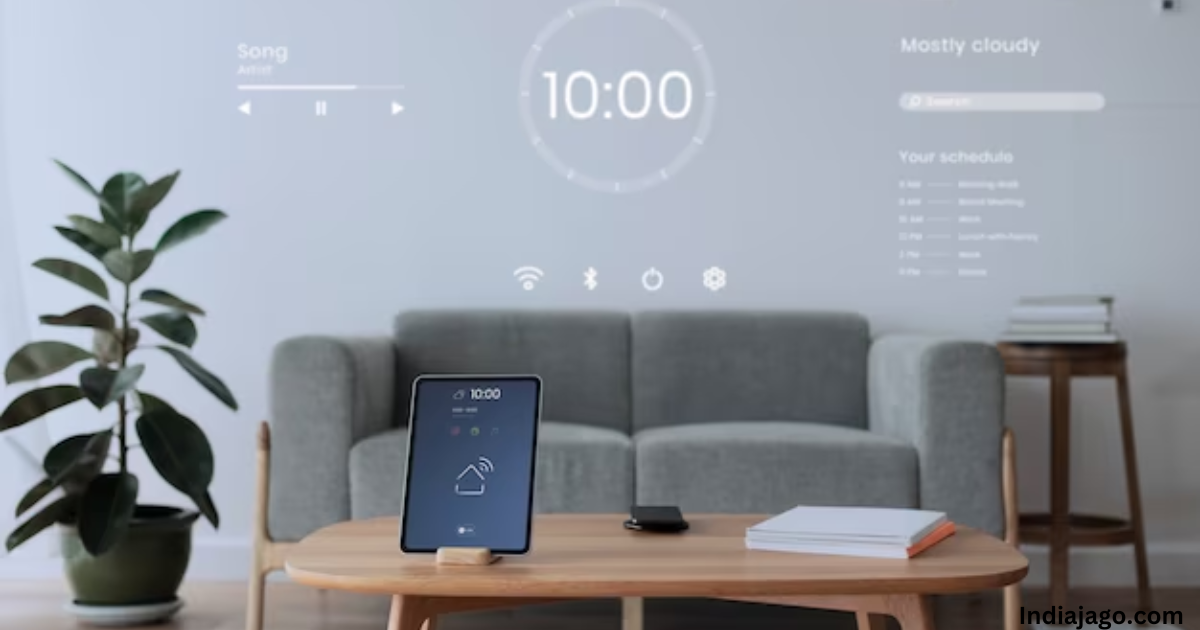Smart Home Technology and Insurance Discounts
1. The Epoch of Smart Living
In contemporary times, the ascent of smart home technology is reshaping our interactions with living spaces. Beyond mere convenience, these innovations are ushering in a new era where homes are not just shelters but intelligent ecosystems. Smart thermostats, remotely controllable lighting systems, and security apparatuses are not just novelties but integral components transforming how we perceive and safeguard our abodes.
2. Synergistic Harmony through Connectivity
At the heart of smart home technology lies the magic of connectivity. These devices seamlessly communicate, forming an intricate web that empowers users with centralized control and automated efficiency. The advent of voice-activated virtual assistants adds an extra layer of sophistication, turning homes into responsive entities catering to the whims of their inhabitants.
3. Fortifying Home Security
The allure of smart home technology is amplified by its profound impact on home security. Motion sensors, video surveillance, and remote monitoring have become staples of intelligent security systems. These features endow homeowners with real-time insights into their property, empowering them to thwart potential security threats promptly.

Insurance Discounts: A Novel Convergence
1. Risk Mitigation in the Insurance Realm
Insurance, at its core, is a business of risk management. Anything that diminishes the probability or severity of a claim is a boon for insurers. Smart home technology, with its proactive risk prevention capabilities, has garnered the attention of insurance companies. Collaborative initiatives and partnerships are sprouting, promoting the adoption of these technologies to create safer living spaces.
2. The Data Tapestry Unraveled
Smart home devices are not just gadgets; they are prolific data generators. Information about a property’s condition, usage patterns, and potential risks is a treasure trove for insurers. A smart leak detection system, for instance, can preemptively alert both homeowners and insurers to potential water damage, a proactive measure that could save significant costs.
3. Discounted Insurance Programs
The insurance landscape is witnessing a paradigm shift, with many companies extending discounts to policyholders embracing smart home devices. The underlying logic is simple – homes fortified with intelligent devices are less susceptible to certain incidents, such as break-ins or water damage, resulting in fewer claims and reduced financial exposure for insurers.
Varieties of Smart Home Technology Influencing Insurance Discounts
1. Sentinels of Security: Smart Security Systems
Recognizing security as a paramount concern, insurance companies are acknowledging the role of smart security systems. Devices like smart cameras, doorbell cameras, and motion sensors not only act as deterrents to potential intruders but also serve as vigilant guardians, providing crucial evidence in case of a security breach.

2. Vigilant Guardians: Smart Smoke and CO Detectors
Early detection of fire or carbon monoxide is pivotal in minimizing damage and ensuring the safety of occupants. Smart smoke and carbon monoxide detectors not only emit alarms but also communicate directly with homeowners and emergency services, potentially averting disastrous events.
3. Green Warriors: Smart Thermostats and Home Monitoring
Beyond security, insurance companies are recognizing the impact of energy-efficient smart home solutions. Smart thermostats empower homeowners to optimize energy consumption, translating into potential savings on utility bills. Insurance discounts become not just an incentive for safety but also for environmentally conscious living.
4. Leak Warriors: Water Leak Detection Systems
Water damage poses a pervasive and costly threat to homes. Smart water leak detection systems act as vigilant guardians, swiftly identifying leaks and notifying homeowners. Insurance companies often sweeten the deal with discounts on property insurance, further incentivizing the adoption of these preventive technologies.
Navigating Challenges and Nuances
1. The Privacy Conundrum
The data deluge generated by smart home devices sparks legitimate privacy concerns. Homeowners, understandably, may hesitate to share intricate details of their lives, fearing potential misuse of this data. Striking a delicate balance between the advantages of smart home technology and safeguarding privacy is paramount for widespread acceptance.
2. Balancing the Ledger: Initial Costs and Affordability
While the long-term benefits and insurance discounts associated with smart home devices are evident, the initial cost can be a deterrent for some homeowners. Addressing concerns about affordability and highlighting the enduring advantages of these investments is crucial for broader adoption.
3. The Interoperability Conundrum
The diversity of devices from various manufacturers in the smart home market often leads to compatibility issues. Standardization efforts within the industry can alleviate these concerns, enhancing the user experience and fostering greater confidence in embracing smart home solutions.
The Tapestry of Tomorrow
1. Redefining Insurance Dynamics
As smart home technology continues to evolve, insurance companies are poised to refine and expand their discount programs. The copious data from smart devices may pave the way for personalized and dynamic insurance models, where premiums are adjusted based on real-time risk assessments.
2. Beyond Homes: Integration with Smart Cities
The integration of smart home technology extends beyond individual residences. The trajectory leads toward smart city initiatives, where interconnected devices contribute to urban efficiency and safety. Insurance companies may forge alliances with municipalities to promote the widespread adoption of smart home solutions.
3. Regulatory Horizons
The intersection of smart home technology and insurance discounts necessitates regulatory scrutiny. Policymakers may need to establish guidelines and standards to ensure responsible data use, protect privacy, and prevent discriminatory practices in insurance pricing.
In Denouement
The fusion of smart home technology and insurance discounts is not merely a convergence of industries; it is a paradigm shift in how we conceptualize home safety and risk management. As technology advances, the synergistic relationship between these realms is poised to deepen, offering homeowners incentives to embrace innovation and insurers tools for proactive risk mitigation. While challenges persist, the allure of enhanced security, energy efficiency, and financial savings beckons us toward a future where homes are not just smart but also safer, more connected, and insurable.
